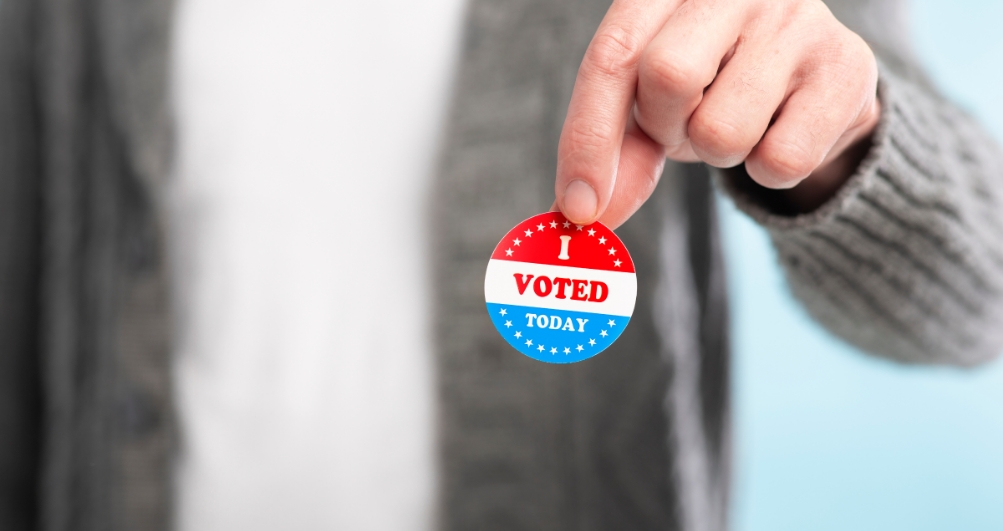Let's face it, those college rankings seem to carry a ton of weight when it's time to pick a school. But do those prestigious lists actually capture the real deal of campus life? Our most recent study explores what truly matters to prospective students beyond just a college's ranking, how actual college experiences stack up against those expectations, and the explosive rise of AI assistants like ChatGPT in academics.
According to our survey of over 1,000 Americans, there's way more shaping college selections than what any ranking suggests. Let's find out what else people consider when making this big decision.
Key takeaways
- 40% of prospective college students say college rankings are a top factor in their choice of college, with 7% considering it the most important factor.
- 71% of prospective college students believe that college ranking tools are biased.
- 75% of prospective college students prefer a university that supports student-led protests.
- 4 in 5 college students and alumni (80%) believe college rankings don't capture the full college experience; 63% of students and alumni from the Top 10 colleges agree.
- Nearly 1 in 10 students and alumni from the top 10 colleges were unsatisfied with their college experience.
- Nearly 1 in 4 students and alumni would not choose the same college again based on their experience.
- 61% of current college students are using ChatGPT for coursework despite 58% saying their professors threatened to fail students caught using AI.
College-selection criteria
When it comes to selecting a college, prospective students weigh various factors carefully. Let's talk about what shapes their decision-making processes.
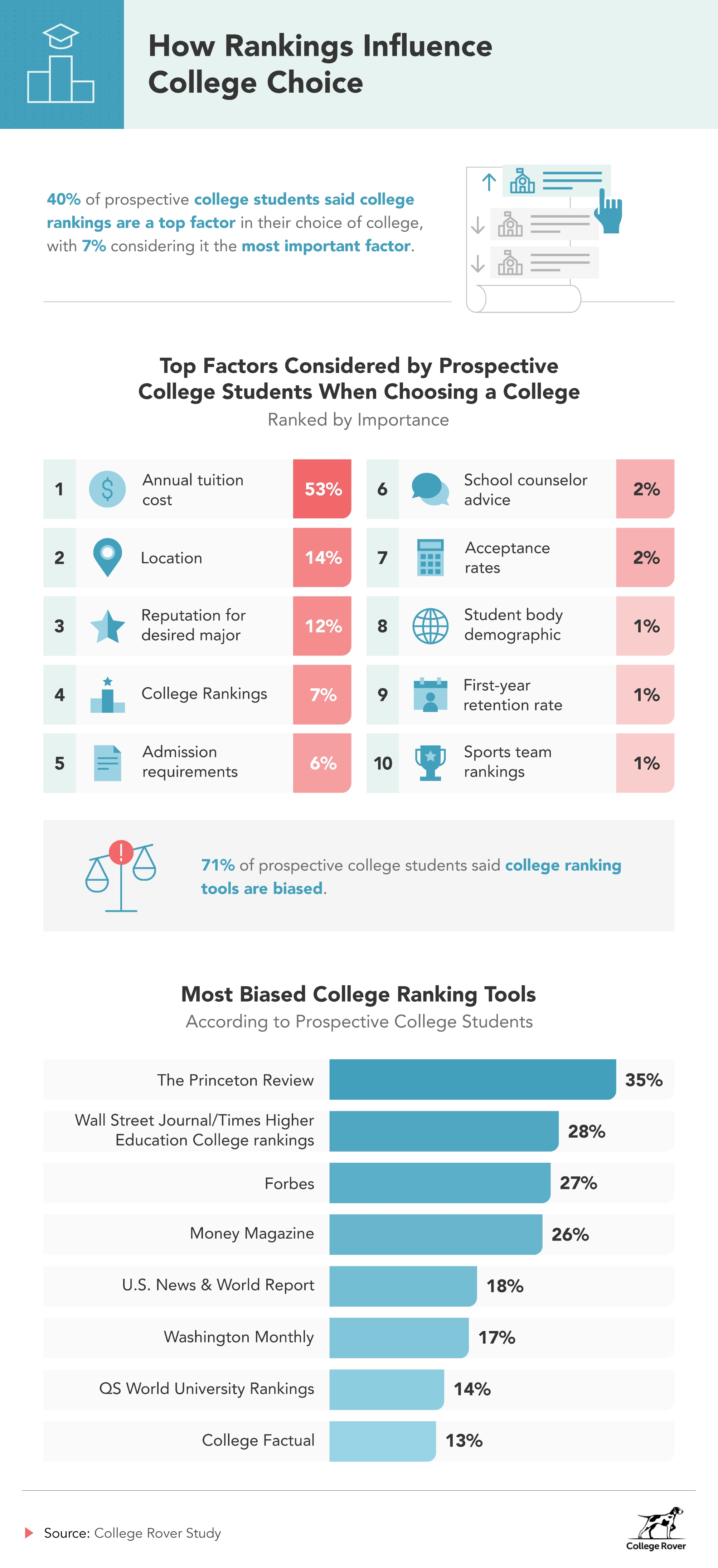
College rankings were a top factor for 40% of prospective students, but only 7% considered rankings the most important consideration. The most trusted college ranking tools were U.S. News & World Report at 27%, Wall Street Journal/Times Higher Education College Rankings at 16%, and Forbes at 15%. However, 71% of prospective students thought those ranking tools were totally biased. This skepticism about college ranking tools was higher among men, with 75% feeling the ranking tools were biased compared to 66% of women.
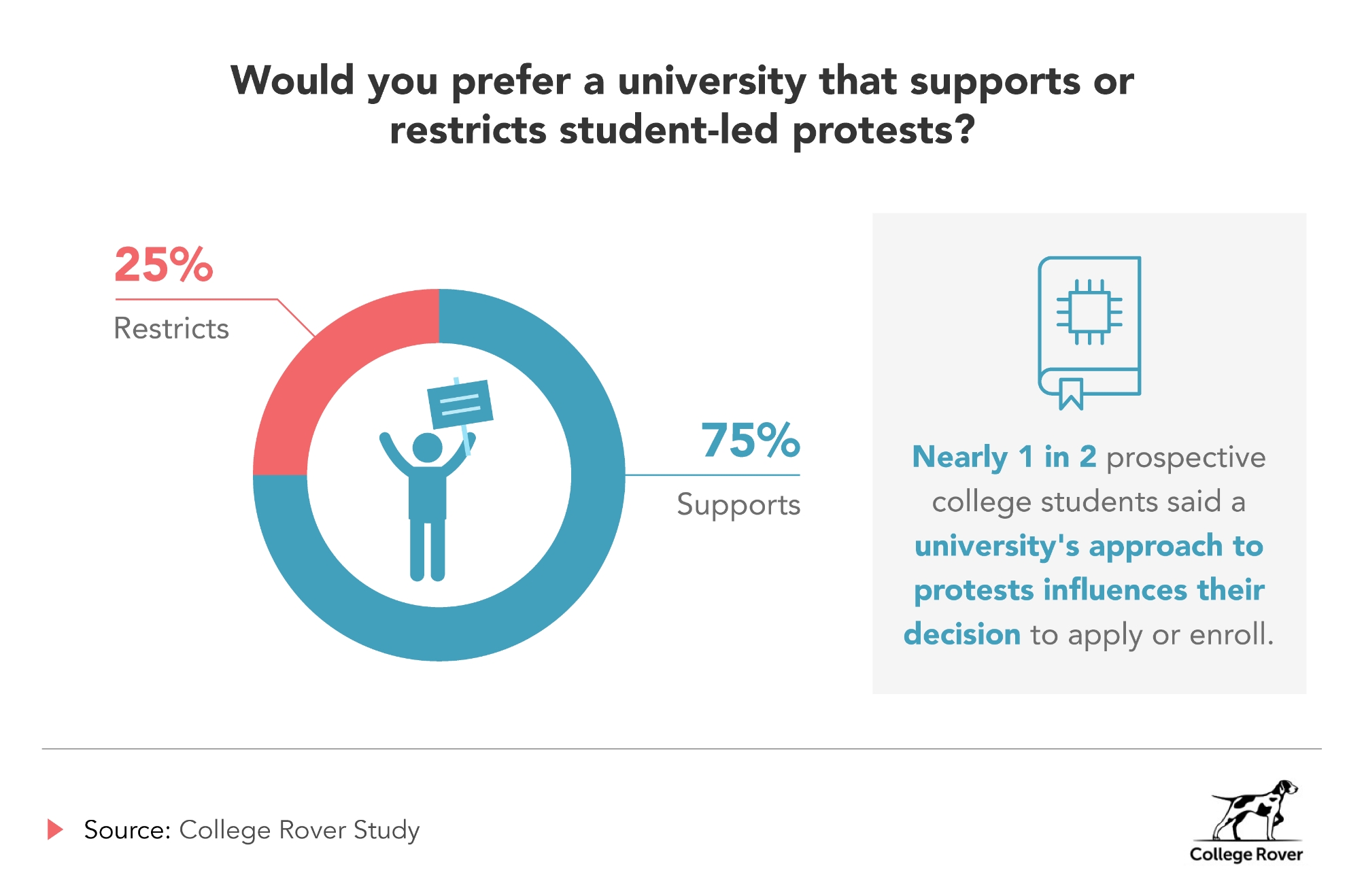
Meanwhile, students were split on how colleges should handle student protests on campus. Prospective students were more likely to say they prefer a university that supports (75%) rather than restricts (25%) student-led protests.
As for current students, over half (56%) felt universities should stay neutral on protests while still keeping things safe and encouraging open conversations about them. There was a bit of a gender divide here, with 61% of women thinking neutrality was the way to go compared to 52% of men. And around 1 in 5 current students (18%) thought schools should actively support and help facilitate those protests, with 19% of women and 13% of men feeling that way.
School rankings vs. college life
Sure, college rankings might help prospective students pick a school initially. But how do those rankings match up with the real experience students have on campus? This section explores the gap between students' expectations set by rankings and their actual realities once enrolled.
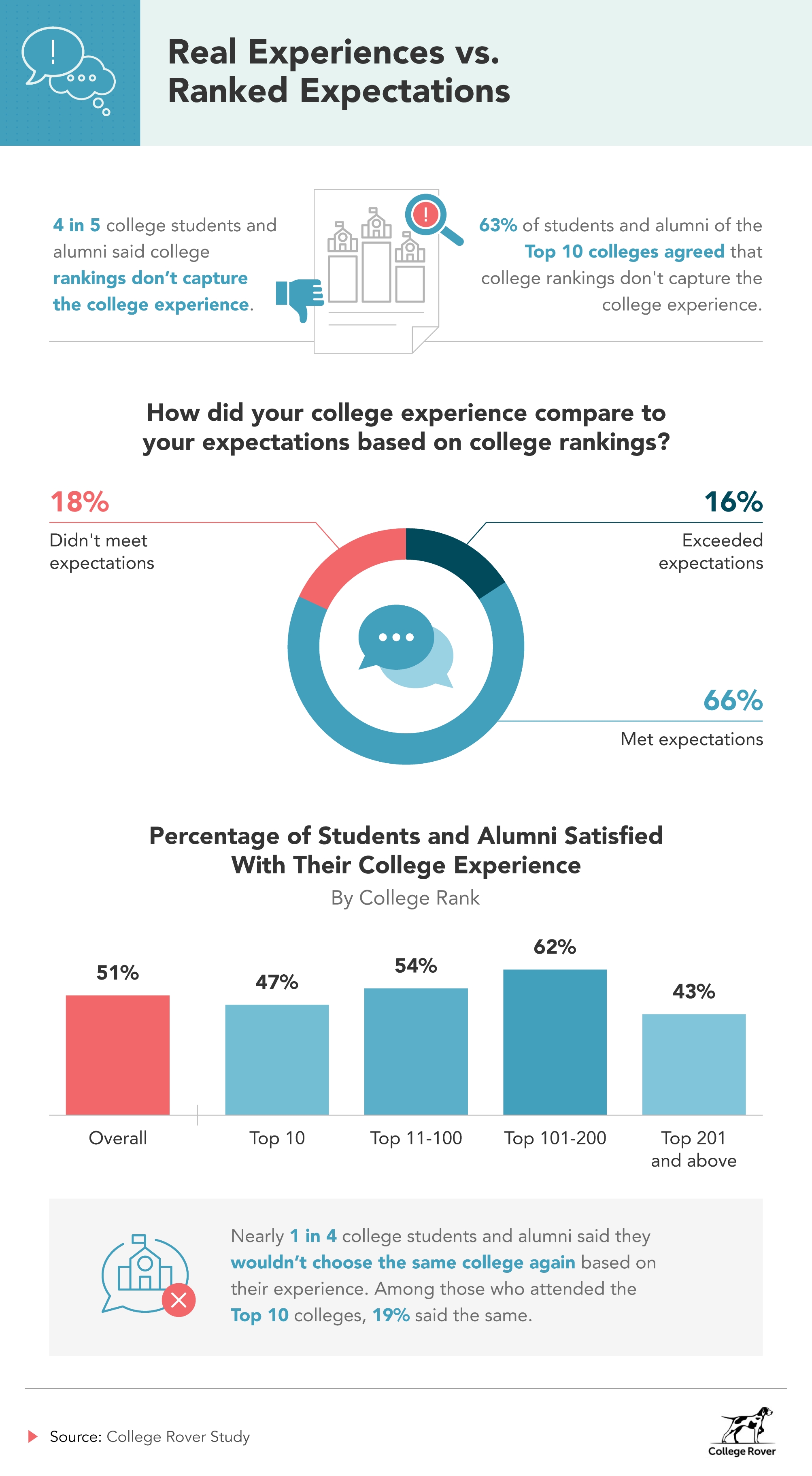
A striking 4 out of 5 college students and alumni believed rankings failed to capture the full essence of the college experience. Even at the elite Top 10 ranked schools, 63% of students and alumni agreed that rankings fell short of reflecting the real deal.
Almost 1 in 4 students and alumni said if they could go back and choose again, they wouldn't pick the same college based on their actual experience there. Recent graduates (25%) were more likely than current students (18%) to say they wouldn't choose the same college again based on their experience.
And while 47% of students and alumni from Top 10 ranked colleges ended up feeling satisfied with how their overall college experience unfolded, 44% felt neutral about it, and nearly 1 in 10 felt unsatisfied.
Students and alumni reported being pleasantly surprised by some of their college experiences that rankings did not address:
- Quality of teaching: 30%
- Community: 28%
- Financial aid: 27%
- Campus facilities: 25%
- Specific programs or courses: 25%
- Student support services: 24%
- Class sizes and student-to-teacher ratios: 24%
The college controversy over AI
Artificial intelligence tools like ChatGPT have been making major waves on college campuses lately. This section gives the inside scoop on just how prevalent students' use of AI has become for coursework and how schools are handling it.
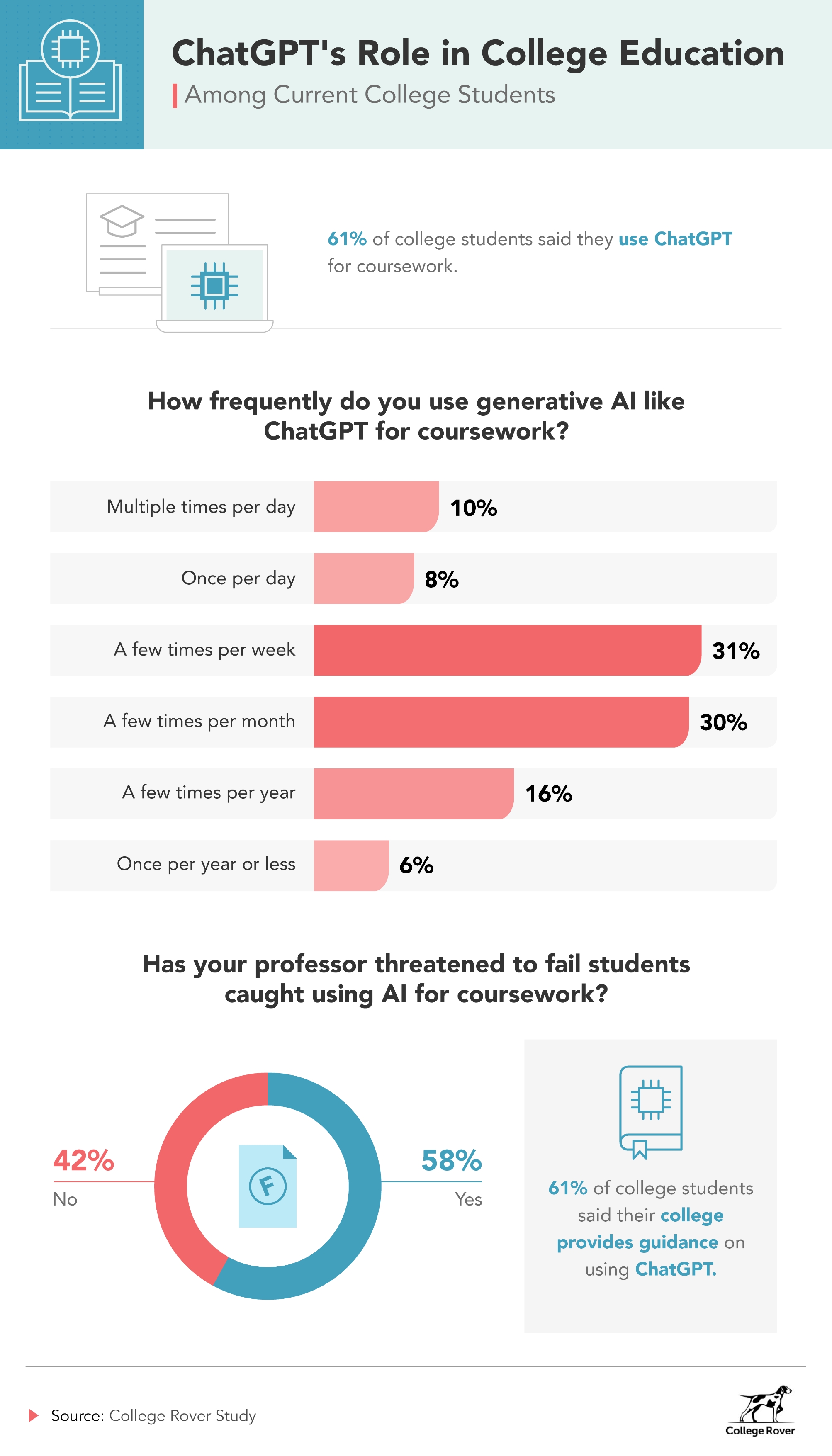
Among current students, men (73%) were way more likely than women (56%) to use ChatGPT for academic tasks and assignments. The subjects they've relied on AI help the most for were:
- English: 24%
- Math: 21%
- Social sciences: 16%
- Natural sciences: 11%
- Humanities: 10%
These figures haven't changed much since 2023, when most students were using ChatGPT for English, math, and social sciences.
With AI integration ramping up, schools have been establishing some ground rules: 61% of college students said their school now gives guidance on properly using ChatGPT and AI tools (up from just 29% who said theirs did the same in 2023).
Professors haven't been too thrilled about it, though - 58% threatened to fail students over unauthorized AI use, up from only 36% making those threats in 2023. Despite all that, 61% of current students straight up admitted to using ChatGPT for coursework this year anyway, way up from around 40% using it in 2023.
Redefining college evaluation
College rankings just don't cut it when judging the full student experience. Sure, they may sway some prospective students, but most agree that these rankings overlook crucial stuff like quality teaching, campus communities, financial aid, facilities, student services, and more. Not to mention the gap between a school's ranking hype and how satisfied students actually felt once enrolled.
Moving forward, let's get real about what really matters when it comes to choosing the right college. Maybe it's clear boundaries about using AI for coursework or being allowed to protest safely when the time comes - whatever your priorities are, a college's ranking may not give you all the info you need to make the best decision.
Methodology
We conducted a survey of 1,003 Americans. Among them, 30% were prospective college students, 32% were current college students, and 38% were recent college graduates within the past year. We surveyed them to gather their opinions on college rankings, assessing their importance in choosing a school, the accuracy of their expectations versus their actual experiences, the use of AI, and their views on universities' responses to student protests.
About College Rover
College Rover has a cool comparison tool that lets students and parents easily check out different colleges side-by-side using real facts and figures like tuition costs, admission standards, and graduation rates. Unlike traditional college ranking sites, our tool is all about giving you the full, unbiased scoop so you can make the best decision for you.
Fair use statement
Let's spark a conversation! Feel free to share this data noncommercially. Link back to this page to join the discussion.













